There are no cloves in Staten Island's 193-acre Clove Lakes Park, which includes a 131-acre New York City Forever Wild preserve. The name comes from the Dutch word "kloven," which means cleft and refers here to the valley between Emerson and Grymes Hills. A brook that used to run through the valley was dammed over the years, creating the lakes and ponds that give Clove Lakes Park the other part of its name. More details on the history of the park, which began its history as such in the 1930s, are at the Parks Department website.
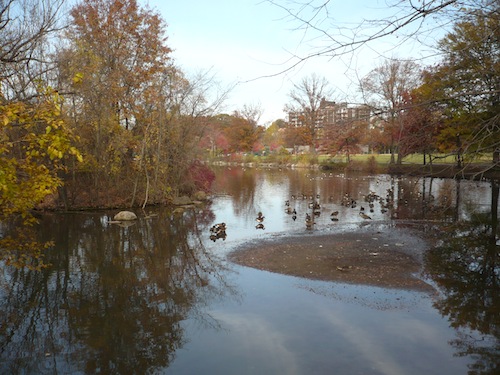
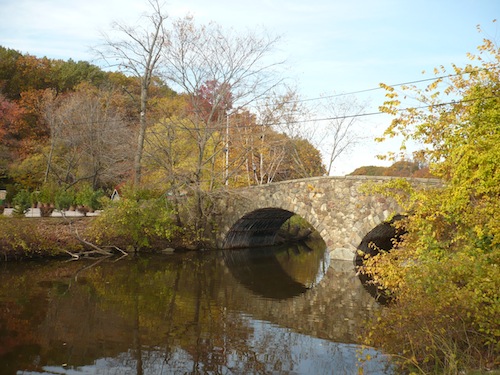
The southernmost lake in the park is Clove Lake. On a sunny day in early November, fall colors made for some gorgeous lighting.
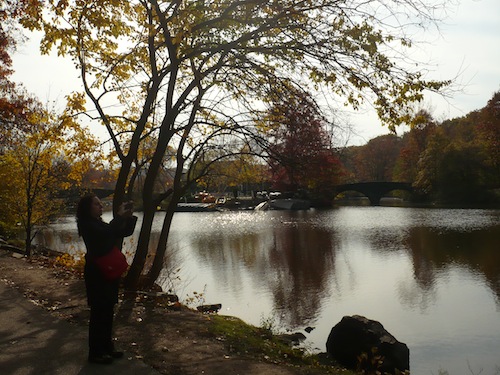
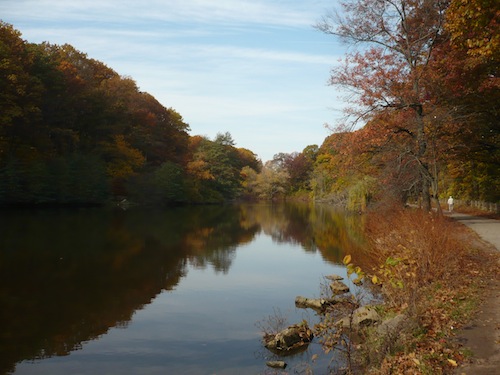
A dirt path for running is a luxury most Manhattanites like me don't have nearby. Makes me wish Clove Lakes Park was an easy walk from the Staten Island Ferry.
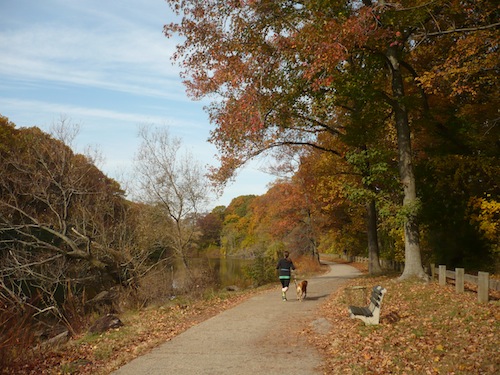
The northwest part of Clove Lakes Park is home to a tulip tree known as Staten Island's largest living thing, 107 feet tall and at least 300 years old. We looked for it without success, though it may have been unmarked among the scrambles of tall straight trees in the woods.
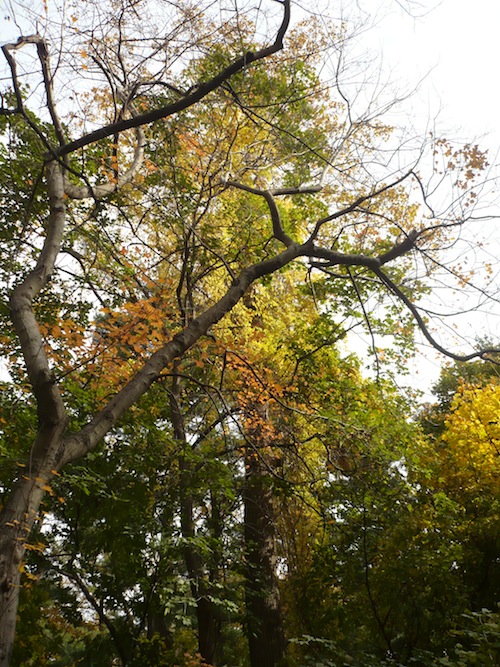
More striking were these less grand but curiously-situated trees growing out of the water. They reminded me of Florida's mangroves.
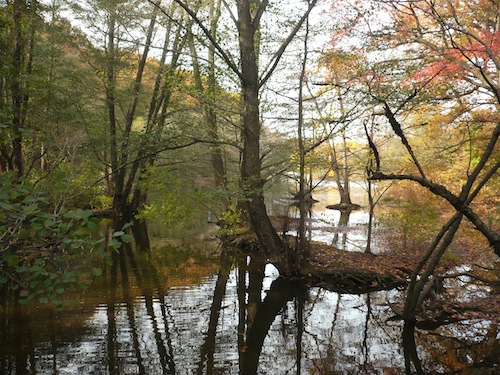
Ducks find nice hideaways along the eastern edge of Clove Lake.
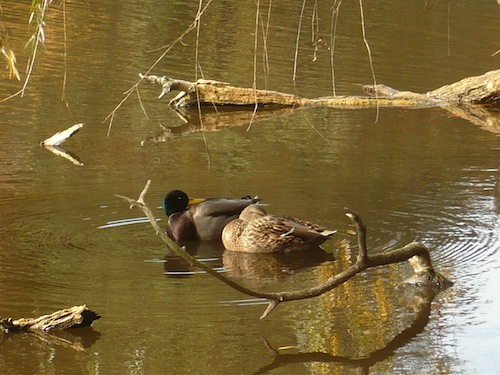
The reeds grow tall along Martling Lake, the middle of the park's three main bodies of water.
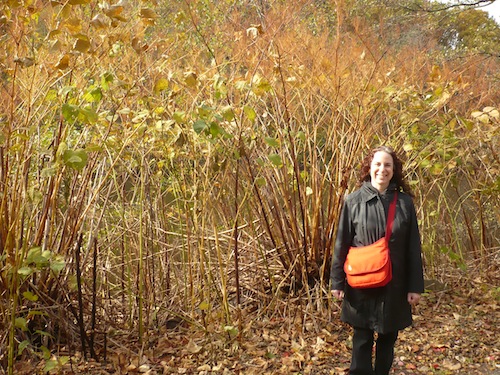
It was a good day for a brisk walk in the woods, with just enough people around to make the place feel active without anything remotely like a crowd.
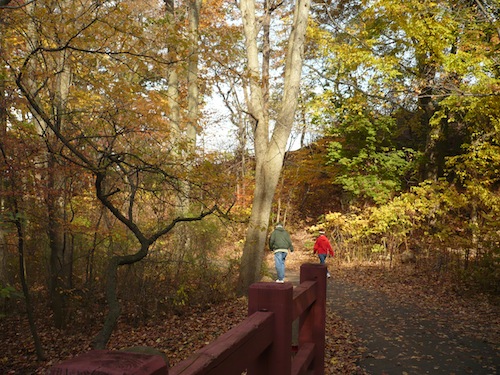
If all these living things get too much for you, there are cemeteries around too. St. Peter's Cemetery dates from 1848 and is, according to Wikipedia, Staten Island's oldest Catholic burial ground. Abutting the eastern edge of the park and thus providing a nice view for any restless departed, it still welcomes deceased Staten Island Catholics.
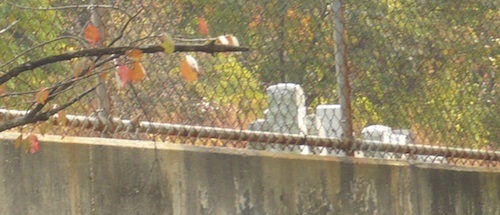
Going back further in time, you can hunt down the remains of the Old Clove Baptist Church Cemetery (1809) just outside the park's southeast corner. Evidently there isn't much to actually see there, though. And that elusive tulip tree at the opposite end of the park is a good century older even than the Baptist cemetery.
So instead of dwelling on final dwellings, let's look at these fall colors reflected in the waters of Brooks Lake, the northernmost of the lake trio:
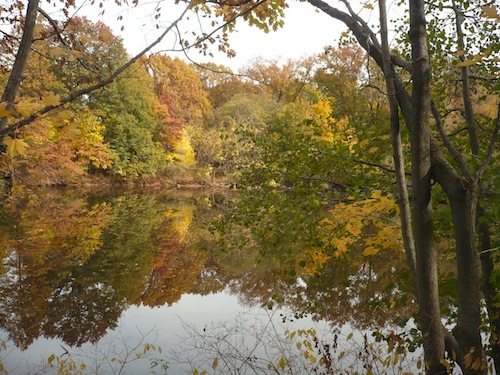
The ice skating rink at the southern end of the park was just getting going for the season. Jingoistic country music was blasting from the sound system as a handful of people tried out the ice, a reminder that we were in New York City's red borough. It wasn't the sort of accompaniment to which skaters in Prospect Park or Central Park would expect to be slip-sliding away.
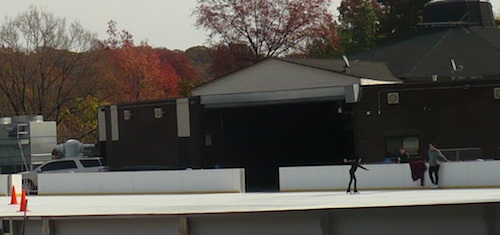
We took our leave of Clove Lakes Park fully aware of the plethora of parks we still have to explore in Staten Island. But have no fear: As more of our friends get priced out of Brooklyn, I expect to have more and more people to visit on Staten Island, NYC's greenest borough.
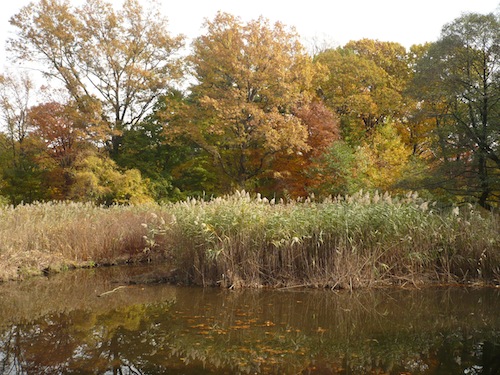
Great story of a great park. I grew up there on Forest Ave. and enjoyed the park immensely. Played ice hockey for the Staten Island Rockets there.
ReplyDelete1958-1962.